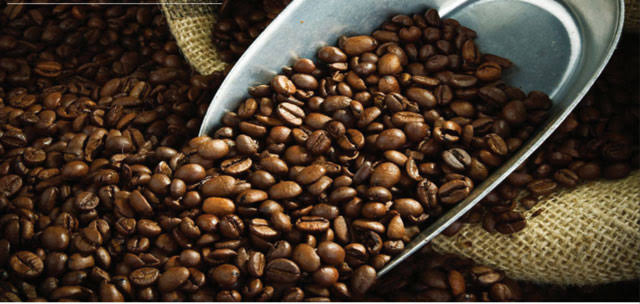The Uganda Coffee Development Authority (UCDA) has released its monthly report for August 2024, showcasing exceptional growth in the coffee export sector.
According to the report, a total of 837,915 60-kilo bags of coffee were exported, valued at US$ 221.63 million, representing a 13.15% increase in quantity and an astonishing 82.98% increase in value compared to August 2023.
This substantial growth underscores the resilience of Uganda’s coffee industry amid global market fluctuations and challenges.
In detail, Robusta coffee exports were particularly strong, comprising 785,667 bags worth US$ 208.14 million, reflecting a 14.33% increase in quantity and an impressive 87.38% increase in value compared to the same month last year. The notable growth in Robusta exports is attributed to exporters releasing stockpiled inventories in response to rising global demand.
Conversely, Arabica coffee exports totaled 52,248 bags valued at US$ 13.49 million, demonstrating a 2.01% decline in quantity from August 2023. However, the value of Arabica exports increased by 34.33%, indicating that higher prices have somewhat offset the decline in volume. This downturn in Arabica exports is attributed to a smaller harvest in the Elgon region due to a biannual off-year cycle, compounded by poor flowering conditions.
The average export price for coffee rose to US$ 4.41 per kilo, marking an increase of US cents 14 from US$ 4.27 in July 2024, and US$ 1.68 higher than US$ 2.73 in August 2023.
Factors driving these price increases include ongoing dry conditions in major coffee-producing countries like Brazil and Vietnam, which are expected to impact global supply and contribute to a potential deficit in the 2024/25 coffee season. Sustainable Arabica fetched the highest average price at US$ 5.58 per kilo, reflecting the growing market for ethically sourced products.
The competitive landscape of Uganda’s coffee export sector is highlighted by the fact that 75% of total exports were dominated by the top ten exporters. Ugacof (U) Ltd maintained the highest market share at 12.60%, albeit down from 16.26% in July 2024.
Following closely were Olam Uganda Ltd at 11.34% (up from 10.50%), and Kawacom (U) Ltd with 9.88% (an increase from 5.52%). This increased concentration of market share among a few key players reflects a competitive environment, with 66 companies participating in exports during the month.
Export Destinations and Global Market Impact
Europe continues to be the primary market for Ugandan coffee, accounting for 73% of exports, though this is a slight increase from 72% in the previous month. Italy remains the largest importer, with a market share of 35.37%, down from 40.68% in July.
Germany follows at 20.83%, indicating a robust demand for Ugandan coffee in these markets. Exports to African nations accounted for 101,562 bags, which is a reduction from 112,713 bags in the previous month, showing a need for increased marketing efforts in regional markets.
In line with its commitment to sustainability, UCDA has promoted various initiatives aimed at enhancing local consumption and improving coffee quality. During August, farm gate prices for various coffee types were reported as follows:
Robusta Kiboko: UGX 6,000 – 6,500 per kilo
Fair Average Quality (FAQ): UGX 11,500 – 12,500 per kilo
Arabica Parchment: UGX 12,500 – 13,000 per kilo
Drugar: UGX 10,500 – 11,500 per kilo
These prices reflect an upward trend from the previous month, with Robusta Kiboko averaging UGX 6,250 (up from UGX 5,900), and FAQ averaging UGX 12,500 (up from UGX 12,000). The increase in farm gate prices is a positive sign for local farmers, who are also benefiting from UCDA’s extensive training programs.
Training and Development Initiatives
In August, UCDA successfully conducted 99 specialized training sessions for 3,130 farmers (2,108 male, 1,022 female, and 586 youth). These trainings focused on Good Agricultural Practices (GAP), Sustainable Land Management (SLM), Climate-Smart Agriculture, and Environmental Management. Key topics included: pest and disease control, preparation for new coffee planting, managing young coffee fields and soil fertility management,
UCDA also collected and analyzed 234 soil samples from farmers, revealing deficiencies in organic matter and essential nutrients. Based on these findings, farmers received tailored recommendations for soil amendments to enhance fertility.
Looking forward, the global coffee production forecast for the 2024/25 season is set to rise by 7.1 million bags, reaching 176.2 million bags. This increase is largely attributed to recovery in Brazil and improved output in Indonesia.
With additional supplies, global exports are expected to rise by 3.6 million bags. However, the anticipated growth in consumption, projected to be 3.1 million bags higher, raises questions about how rising supply will meet demand amid evolving consumer preferences.
The August 2024 report from UCDA emphasizes Uganda’s significant advancements in the coffee export sector. With rising prices and increased export volumes, the country is well-positioned to capitalize on global market opportunities while promoting sustainable practices that benefit local farmers.
As the coffee landscape continues to evolve, ongoing training, investment, and innovation will be key to maintaining Uganda’s status as a competitive player in the global coffee market.
Do you have a story in your community or an opinion to share with us: Email us at editorial@watchdoguganda.com













